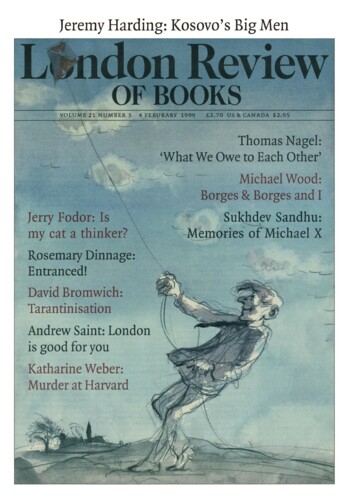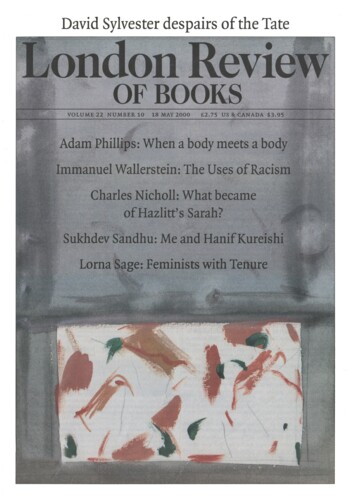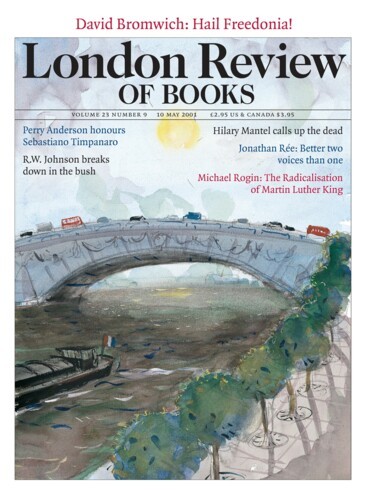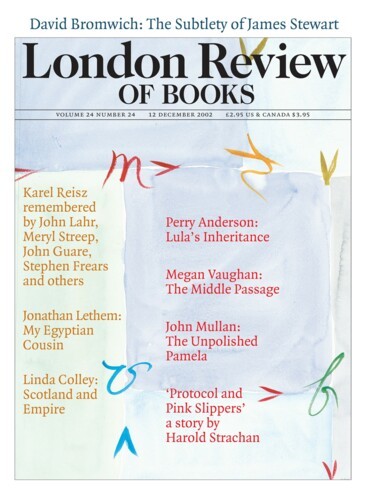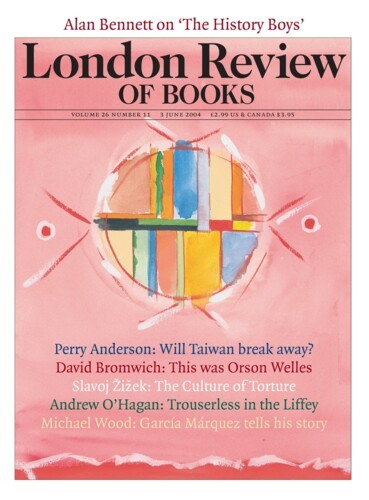What We Have: Tarantinisation
David Bromwich, 4 February 1999
Post-Modernism entered the public mind as a fast-value currency in the late Seventies and early Eighties, in the field of architecture, where its association with gimmicky tropes of visual play (the logo-in-the-sky of the Transamerica Pyramid in San Francisco, the phonejack-in-the-sky of the AT&T Building in New York) gave plausibility to the promotional prose. AT&T was the work of Philip Johnson, the friend of Andy Warhol, and so the publicity came with a background story ready to hand. The Post-Modern would be the art-historical movement that went beyond art by stopping short of art. Where Modernism was enchanted by affinities with the art of the past, and offered itself as a climactic annunciation, Post-Modernism would be ‘traditionalesque’: a little of this tradition, a little of that, whatever pleases the eye (but not too demandingly), or diverts the mind (but not into thought).‘
